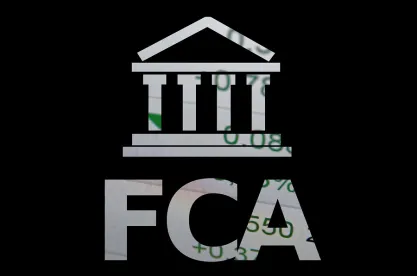Over the last several months, a handful of federal court decisions—including two rulings this summer on challenges to the admissibility of proposed expert testimony—serve as reminders of the importance of (and parameters around) fair market value (FMV) issues in the context of the Anti-Kickback Statute (AKS) and the False Claims Act (FCA).
First, a quick level-set. The AKS, codified at 42 U.S.C. § 1320a-7b(b), is a criminal statute that has long formed the basis of FCA litigation—a connection Congress made explicit in 2010 by adding to the AKS language that renders any claim for federal health care program reimbursement resulting from an AKS violation automatically false/fraudulent for purposes of the FCA. 42 U.S.C. § 1320a-7b(g). Broadly, the AKS prohibits the knowing and willful offer/payment/solicitation/receipt of “remuneration” in return for, or to induce, the referral of federal health care program-reimbursed business. Remuneration can be anything of value and can be direct or indirect. In interpreting the “in return for/to induce” element, a number of federal courts across the country have adopted the “One Purpose Test,” in which an AKS violation can be found if even just one purpose (among many) of a payment or other transfer of value to a potential referral source is to induce or reward referrals—even if that clearly was not the primary purpose of the remuneration.
Where does FMV come into the picture? In several places. First it is a requirement of some of the optional AKS “safe harbors” that the US Department of Health and Human Services has promulgated over time at 42 C.F.R. § 1001.952. If a scrutinized transaction or arrangement meets all of the requirements of a safe harbor, it “shall not be treated as [an AKS violation]”—end of story. If it does not meet all such requirements, the transaction or arrangement may still be legal, but the government (or a qui tam relator) is free to challenge it as an AKS violation by proving all of the required AKS elements noted above.
The importance of FMV outside of the safe harbors has been reaffirmed by a handful of recent federal court decisions.
An increasing number of courts have (at least implicitly) recognized that a referral recipient’s provision of legitimate assets or services to a referral source generally cannot constitute prohibited remuneration for AKS purposes when the referral source pays FMV in return for what it receives. And the same is true when the transaction is reversed—with the referral recipient paying the referral source an FMV price for legitimate assets or services provided by the referral source. The underlying logic is pretty simple: if A pays B $100 in exchange for receipt of legitimate (non-referral) services that truly are worth $100, the entire purpose of the $100 payment is legitimate and there is no portion of it (i.e., no remuneration) left over whose purpose could, in whole or part, be to induce/reward any patient referrals B might send A’s way—no matter how much A’s contemporaneous emails, notes, statements, etc. may indicate that A desperately wants, or even expects, B to refer federally insured patients to A.
Even applying the government-friendly “One Purpose Test,” it is mathematically clear in such a case that no purpose of the remuneration was to induce or reward referrals; all $100 were to pay for something legitimate received in return. That is precisely how one can square the “One Purpose Test’s” seemingly massive sweep with some of the very same courts’ recognition that a defendant has not violated the AKS “merely because [it] hoped or expected or believed that referrals may ensue from remuneration that was designed wholly for other purposes.” United States v. McClatchey, 217 F.3d 823, 834 (10th Cir. 2000); accord, e.g., United States v. Omnicare, Inc., 663 F. App’x 368, 374 (5th Cir. 2016). How could one ever possibly determine that remuneration was “designed wholly for other purposes” if one had evidence of a contemporaneous hope or expectation by the payer of that remuneration that referrals between the parties would ensue? The answer is that the remuneration was set at FMV for the legitimate goods or services transacted between the parties.
Under this rubric, it is only where the referral recipient pays the referral source more than FMV, or charges the referral source less than FMV, for the legitimate assets/services that there is some remuneration left over whose purpose might be illicit in whole or part and is left to be otherwise explained. (Some courts have gone so far as to allow a presumption that any such excess remuneration was at least in part designed to induce or reward referrals, leaving the burden on the defendant to prove otherwise.)
For example, in United States ex rel. Cairns v. D.S. Med., LLC, No. 1:12CV00004 AGF, 2017 U.S. Dist. LEXIS 140628, at *1 (E.D. Mo. Aug. 31, 2017), the court recently denied the defendants’ joint motion for summary judgment on the government’s and relator’s claims that they had violated the FCA by submitting claims for reimbursement for spinal surgery services and the purchase of implant devices that had resulted from a prohibited kickback arrangement among them and others. Some of the remuneration alleged to be part of the purported scheme was the fact that one (referral recipient) defendant allowed a (referral source) co-defendant to live with her for two-plus years “in a home she purchased, renovated, and furnished with funds from her [co-defendant distribution company’s] bank account, at a rent a jury could find was below fair market value.” Id. at *4 (emphasis added). In denying the motion for summary judgment, the court ruled that the relator and government potentially could meet their burden of proof in part because “being allowed to live in a home at a below market value rent could constitute remuneration under the AKS.” Id. at *11 (emphasis added). The court was not directly confronted with the question of whether, had the rent charged instead been consistent with FMV, an AKS violation still could have been proven. But the court’s repeated mention of the below-market level of the rent in its opinion underscores the importance of FMV in the AKS calculus.
In the same vein, in applying the AKS, at least three other district courts and one court of appeals panel recently have cited a (non-exclusive) definition of “remuneration” that Congress set forth in a separate, but parallel, statutory provision (the Civil Monetary Penalties Law‒CMPL) to limit “remuneration” in referral source transaction contexts to “transfers of items or services for free or for other than fair market value.” 42 U.S.C. § 1320a-7a(i)(6) (emphasis added); see Miller v. Abbott Labs., 648 Fed. Appx. 555, 561, 2016 U.S. App. LEXIS 8882, *16, 2016 FED App. 0263N (6th Cir. May 12, 2016); United States ex rel. Wood v. Allergan, Inc., No. 10-CV-5645 (JMF), 2017 U.S. Dist. LEXIS 50103, at *56 (S.D.N.Y. Mar. 31, 2017); Bingham v. Baycare Health Sys., 2016 U.S. Dist. LEXIS 186016, *18 (M.D. Fla. Dec. 16, 2016) (magistrate judge decision); United States ex rel. Arnstein v. Teva Pharm. USA, Inc., 2016 U.S. Dist. LEXIS 22554, at *47 (S.D.N.Y. Feb. 22, 2016). While the statutory element semantics differ slightly from the logic discussed above, the bottom line based on this definition of remuneration borrowed from the CMPL is the same: the exchange of legitimate goods or services at an FMV price does not leave any room for illegal remuneration that could constitute an AKS violation.
Consensus for this position appears to us to be building over time, but decisions on the subject unfortunately have not been entirely uniform. In MedPricer.com, Inc. v. Becton, Dixon & Co., No. 3:13-cv-1545 (MPS), 2017 U.S. Dist. LEXIS 50226 (D. Conn. Apr. 3, 2017)—a non-FCA case concerning contract enforceability—in denying a motion to reconsider a summary judgment ruling, the court rejected the moving party’s new argument that the AKS element of remuneration could not be proven because there was “no evidence in the record of a [non-FMV] payment” for that party’s services, pointing to the CMPL definition of remuneration we just discussed. Departing from the Miller, Wood, Bingham and Arnstein courts, the court in MedPricer deemed the CMPL definition inapplicable to the AKS and also irrelevant because it was phrased in non-exclusive terms. At least among recent decisions, MedPricer stands alone in taking this view—although one should expect relators and the government to keep espousing it until a clear appellate-level consensus emerges on the issue.
Bottom line: in a referral source service contract or asset transaction setting, solid proof of FMV pricing will significantly reduce the risk of that transaction or arrangement giving rise to AKS-based FCA liability later on—even if it falls outside of the AKS Safe Harbors. Check back soon for a companion post, in which we will examine recent decisions on the mechanics and admissibility of FMV evidence, and identify some best practices in that area.




 />i
/>i
